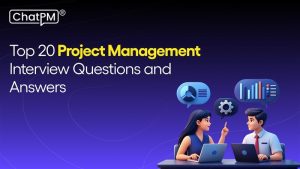Are you ready for the future of project management? With technology and business needs constantly evolving, staying ahead of the curve is essential. What new trends are shaping the way projects are managed? How can these innovations help your team work smarter and more efficiently? Let’s explore the exciting changes coming your way in the world of project management.
The Future Trends in Project Management
1. Automation of Routine Tasks
AI is transforming the way project managers approach everyday tasks. Many jobs that require handling big volumes of data, such as establishing schedules or generating reports, can be easily automated using AI. This enables project managers to save time and concentrate on crucial activities requiring creativity and decision-making. AI-powered solutions can also deliver reminders and notifications to team members, ensuring that everyone stays on track without requiring frequent follow-up from the project manager. Automating these repeated procedures reduces the chance of human error, resulting in more accurate data and fewer errors. This not only increases project efficiency but also improves workmanship. With less time spent on administrative activities, project managers can focus their efforts on strategic planning, issue solving, and leading their teams to success. The end result is a more simplified and successful approach to project management, allowing both the team and the project manager to focus on what is actually important.
2. Leveraging Virtual Assistants for Efficiency
Virtual assistants are software programs that use artificial intelligence technology such as natural language processing and machine learning. They enable project managers and their teams to communicate more effectively. These assistants can assist team members with their work, swiftly access essential knowledge like status updates and project KPIs and notify project managers of any hazards or delays. AI-powered virtual assistants are likely to play an important role in project management through 2025 and beyond. While they provide vital support, it is important to note that they are not intended to replace project managers. Instead, they collaborate with human intelligence, augmenting the manager’s knowledge to improve project outcomes. Virtual assistants save time, decrease mistakes, and improve process efficiency, allowing project managers to focus.
3. Emerging Skills: Soft and Digital Competencies
New project management trends need professionals to learn a blend of soft and digital skills in order to successfully implement innovations. As the workplace changes, project managers must become more versatile, managing remote or distributed teams and accommodating variable work hours. To effectively lead teams through problems, project managers must also improve their emotional intelligence, critical thinking, and decision-making skills. These skills are essential for understanding new technology, leading diverse teams, and maintaining effective communication. Project managers must also be adept in using digital technologies for collaboration, data analysis, and project tracking. Being technologically knowledgeable is no longer a choice, since digital technologies are increasingly required for successful project execution and planning.
4. The Role of Emotional Intelligence in Leadership
Emotional intelligence (EI) refers to the capacity to recognize, understand, and control one’s own emotions while also being aware of and comprehending the emotions of others. In project management, emotional intelligence (EI) is essential for strengthening interactions with team members, clients, and corporate executives. Project managers with high emotional intelligence can settle disagreements, form strong connections, and promote open communication. This capacity contributes to a healthy, supportive environment inside the team, boosting collaboration and trust. Understanding and controlling emotions effectively allows project managers to approach obstacles more calmly and professionally, resulting in easier project execution. EI is also useful in encouraging team members, recognizing their issues, and giving appropriate assistance, all of which contribute to improved project outcomes.
5. AI’s Diverse Impact on Project Management
Artificial intelligence (AI), which includes machine learning, automation, predictive analytics, and generative AI, is redefining project management by reimagining how projects are planned and completed. AI automates repetitive operations, such as scheduling and reporting, saving time and minimizing mistakes. It also improves decision-making by analyzing data and producing accurate forecasts, allowing project managers to foresee obstacles and efficiently allocate resources. AI-integrated project and resource management technologies optimize workflows and increase overall efficiency. These solutions enable project managers to focus on strategic activities while AI provides data-driven insights and regular operations. As AI advances, its numerous applications will play an increasingly important role in determining the future of project management.
6. Innovative Approaches to Resource Management
Artificial intelligence is revolutionizing resource management, particularly in large organizations with vast teams. It improves resource allocation by analyzing employee data such as abilities, experience, availability, and geography to swiftly choose the best candidate for each work. This guarantees that works are distributed efficiently, resulting in increased production. Furthermore, AI aids in resource planning, which is essential to ensure smooth workflows in contexts where several projects use the same resource pool. By analyzing workloads and schedules, AI ensures that resources are not overloaded or underutilized, fostering balance and efficiency. Predictive analytics improves resource management by identifying prospective workload concerns that can give rise to bottlenecks. By spotting these issues early on, project managers can take corrective action to avoid delays and ensure consistent development.
7. Future of Forecasting and Decision-Making
Predictive analytics is transforming forecasting and decision-making in project management. Modern technologies use historical data and current project parameters to forecast prospective changes in the project environment. This involves estimating delays, detecting resource bottlenecks, predicting budget overruns, and assessing overall project performance. Scenario analysis is one of the most effective predictive analytics applications, allowing project managers to examine several ways for dealing with probable risks and obstacles. Managers can discover the most effective strategies to avoid future bottlenecks and reduce risks by assessing potential outcomes. With these insights, project managers can make data-driven decisions that increase project efficiency and success. They can keep projects on schedule and resources under control by detecting hazards early on and adopting proactive steps.
The future of project management lies in blending technology with human expertise. Innovations like AI, predictive analytics, and smarter tools are enhancing efficiency, collaboration, and decision-making. These trends empower project managers to focus on strategy and leadership while technology handles routine tasks and data-driven insights.
Stay ahead with ChatPM, your partner in next-gen project management. Ready to transform your approach? Book your demo today!







